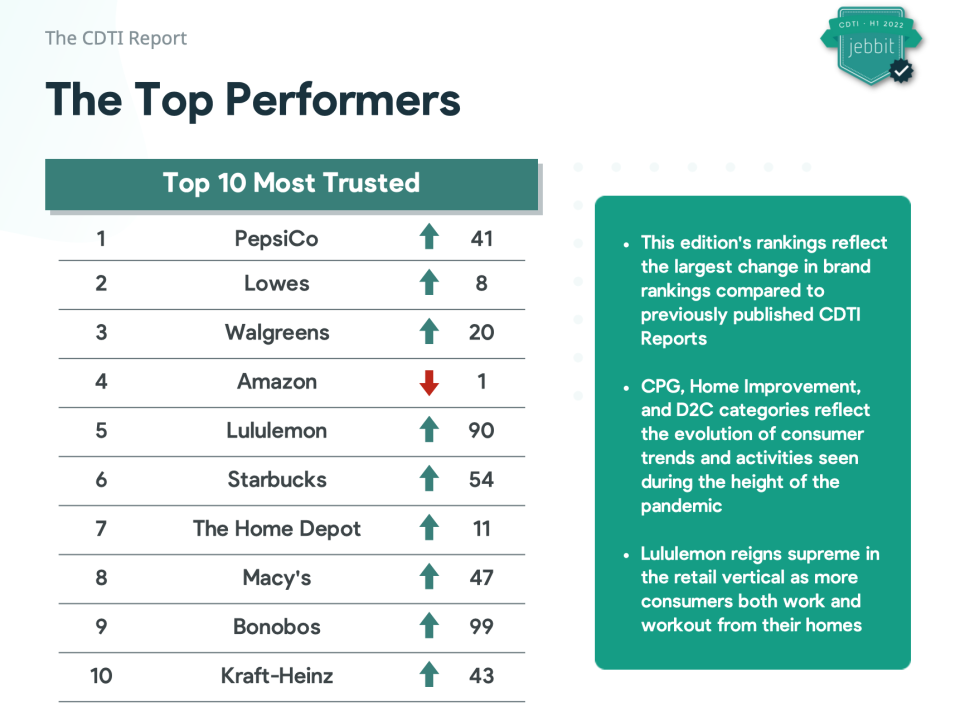Field Notes: Marketing

Mega retail players such as PepsiCo, Lowe’s, Walgreens, Amazon and Lululemon top the list of 100 brands consumers trust with using their personal data, according to the Consumer Data Trust Index published by Jebbit — and its report’s findings point to a “new era of brand trust.”
In its polling of 2,500 adult U.S. consumers’ opinion on various aspects of brand trust, 30 percent of consumers said companies asking for too much information is the number-one factor resulting in brand mistrust. But longstanding legacy brands have the upper hand, as 35 percent of consumers polled said they trust traditional brands more than online direct-to-consumer brands.
More from WWD
JLo, Jared Leto, Vanessa Hudgens and More Attend the LuisaViaRoma for UNICEF Gala
Inside Vacheron Constantin's Dinner in Bridgehampton With Jayma Cardoso
“Traditional, established brands have one key advantage: legacy brand recognition. Their logos, their catchy ads or tag lines that trigger nostalgic memories whenever consumers see or hear them. And inherently, the legacy of these brands is synonymous with trust,” the report noted.
Brand and organizations, too, are feeling the burn. Seventy-five percent said that since the pandemic began, they have had difficulty building and maintaining trust with their customers.

Companies such as Google, Apple and Netflix fell in the rankings, which Jebbit speculates could be due to bad PR across big tech; needed improvements in education and communication for consumers regarding privacy and data, and a blend of subscription price increases with talk of offering a new tier that includes ads, respectively.
Privacy-related pain points and eye rolls that ensue throughout the e-commerce consumer experience won’t stop shoppers from online perusal. Sixty-three percent of consumers say their online shopping habits increased since the start of the COVID-19 pandemic, but the caveat is that with more time spent online, 40 percent said they’re seeing an uptick in irrelevant online ads and marketing as they browse, spurring increased consumer distrust.
Interestingly, 49 percent of consumers said methods such as cookie consent banners, privacy emails and/or data transparency communications made them trust the brand more.
“The punchline is that consumers will continue to spend more time engaging with businesses online,” the report said. “So no matter the vertical or business type, the onus is on business leaders to continue to optimize their digital ecosystems in an effort to both meet the expectations of today’s digital consumers — and to foster an environment of trust.”
MORE BUSINESS NEWS FROM WWD:
Astronaut Karen Nyberg Launches ‘Earth Views’ Fabric Line
Evrnu Develops Recyclable Material Made Entirely of Textile Waste
Citizens of Humanity, Net-a-porter Partner for Denim Collaboration
Sign up for WWD's Newsletter. For the latest news, follow us on Twitter, Facebook, and Instagram.

